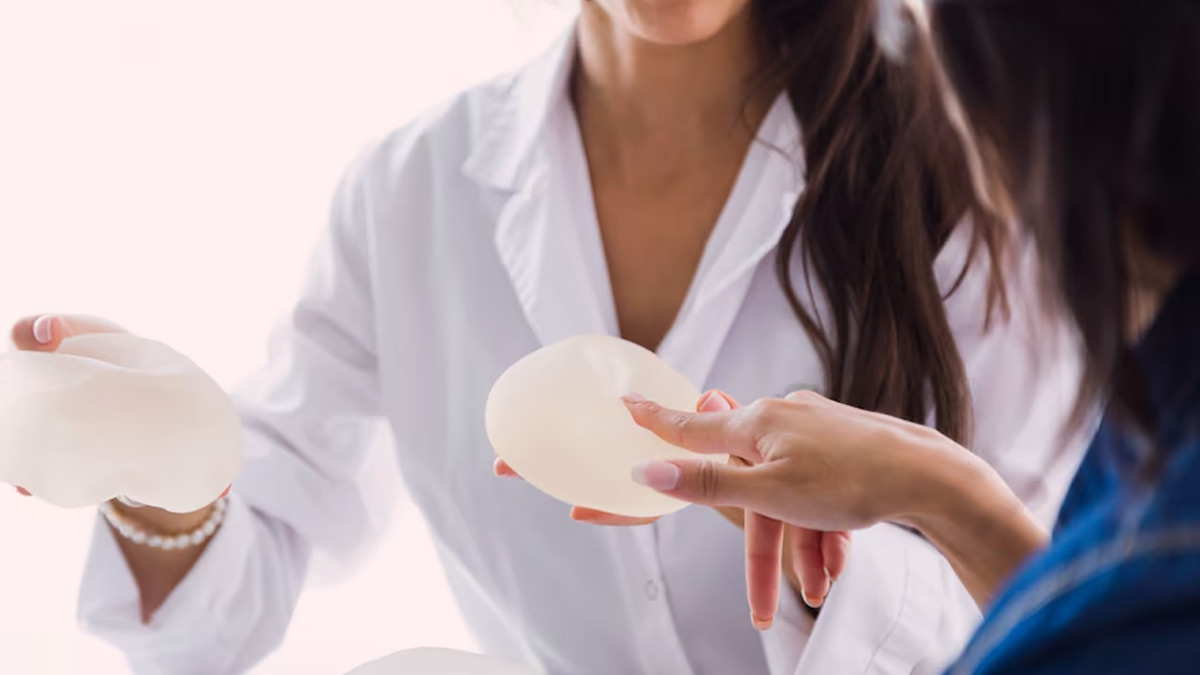
Are you considering breast implants or already have them? It’s a decision that can boost confidence and help reclaim your body, especially after breast cancer surgery. But with this choice comes an important question: Could implants increase your risk of developing cancer? It’s a concern that has been on the minds of many women, and understanding the potential risks is crucial. We spoke to our expert Dr Basila Ameer Ali, Breast Surgeon, KMC Hospital Dr BR Ambedkar Circle, Mangalore, who explained the link between them and insights to help you make informed decisions about your health.
Table of Content:-

“Breast implants are silicone or saline-filled prosthesis that are inserted into the breast for augmentation of the size of the breast for cosmetic reasons or into the chest wall for reconstruction post-breast cancer surgery. With the increase in the utilisation of implants, there appears to be a justifiable concern over their causative role in cancer,” said Dr Ali.
In 2011, the US Food and Drug Administration (FDA), first issued a safety warning about the risk of developing certain cancers in the fibrous capsule that develops around the implant as part of the body’s normal reaction to a prosthesis.
Breast Implant-Associated Anaplastic Large Cell Lymphoma (BIA-ALCL)

“The most important of these is Breast Implant-Associated Anaplastic Large Cell Lymphoma (BIA-ALCL) which is a rare cancer of the immune system, unlike breast cancer, which arises from breast cells. As of June 2023, only 1300 cases have been reported. It usually occurs around 10 years after implant surgery, commonly seen with textured implants,” highlighted Dr Ali.
Symptoms and Treatment
Its symptoms include fluid around the implant, swelling or lump in the breast, pain or changes over the skin of the breast.
The treatment involves evaluation of the extent of cancer and if localised, implant removal along with the capsule and scar tissue is curative. Both implants are removed even if cancer is only found in one breast. Rarely they may require radiation or systemic therapy depending on the disease extent.
Also Read: Breast Cancer Treatment: Expert Explains Its Link With Heart Disease And How DASH Diet Can Help
Breast Implant-Associated Squamous Cell Carcinoma (BIA-SCC)
“An even rarer cancer that has been associated with breast implants is Breast implant-associated Squamous Cell Carcinoma (BIA-SCC) with less than 20 cases reported worldwide. It is potentially aggressive and can spread to lymph nodes and distant sites. It usually occurs around 20 years after the implant surgery. The treatment for this cancer is similar to BIA-ALCL,” added Dr Ali.
Also Read: From Physical To Emotional Impact: Expert Lists Complications Of Breast Cancer You Should Know
Breast Implants and Breast Cancer Risk

Breast implants do not pose an increased risk of breast cancer; however, they pose a risk of delayed diagnosis of breast cancer as implants may obscure the lump during palpation or routine imaging methods. As such, MRIs can be advised for patients with implants, especially if they already are at a higher risk for breast cancer.
According to the US FDA, The longer you have breast implants, the higher the likelihood of developing complications, some of which may necessitate further surgery. The lifespan of breast implants differs from person to person and is unpredictable, meaning that anyone with breast implants might need additional surgeries, though it's impossible to determine when.
Bottomline
Dr Ali concluded, “Women who are keen on getting an implant for cosmetic reasons, or need to get one for reconstruction post-cancer surgery, should be made aware of the risks and make an informed decision regarding the same. Regular monthly self-breast examinations and screening tailored to patients with implants should be recommended to help them monitor their breast health.”
[Disclaimer: This article contains information provided by an expert and is for informational purposes only. Hence, we advise you to consult your own professional if you are dealing with any health issues to avoid complications.]
Also watch this video
Read Next
Hrithik Roshan’s Sister Sunaina Shares Her Battle with a Rare Cancer Diagnosis; Know All About It
How we keep this article up to date:
We work with experts and keep a close eye on the latest in health and wellness. Whenever there is a new research or helpful information, we update our articles with accurate and useful advice.
Current Version